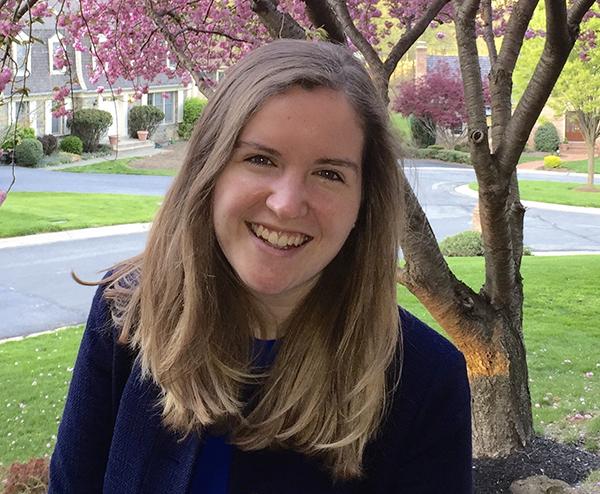An intern at the Pentagon since her freshman year, Michelle Shevin-Coetzee knew early on in her college career what she wanted to research during her senior year.
Last week, she had the opportunity to present her senior honors thesis to members of Congress through Posters on the Hill, an event hosted by the Council on Undergraduate Research, a national organization that supports and promotes undergraduate research and scholarship. The event gave students an opportunity to present their research in the Rayburn House Office Building on Capitol Hill last Wednesday and Thursday.
Shevin-Coetzee and the other 59 selected students stood for two hours with posters detailing their research while congressmen, senators and staffers spoke with them about their work and viewed the students’ presentations.
“It was a really wonderful experience to be there,” she said. “The majority of the students who had participated had backgrounds in science so there were a lot of chemistry, physics and biology abstracts. I was the odd person out with the social science focus, so a few of the individuals who came over to view my poster were excited about understanding the research.”
Shevin-Coetzee is a member of the Elliott School Undergraduate Scholars program, a selective group of students that dedicate their junior or senior year to an independent research project. Students in the program receive a stipend of $500 for their research and faculty assistance to produce work that’s of quality equal to that found in academic publications.
The program ends with an on-campus presentation of the research at the end of the spring semester. Shevin-Coetzee’s research focused on the inefficiencies of budget processes in the Department of Defense and Congress, and presented suggestions on how to fix the issues.
“Drawing upon a series of interviews with government officials, military personnel and academics, I explain the process by which the military services reconcile the difference between the desirable force and the feasible force,” she wrote in her paper.
Shevin-Coetzee, who was the first GW student selected for the program in more than a decade, said it was her experience with research during her study abroad program at the University of Cambridge in the spring of 2014 that convinced her to take on more formal research.
“[Students at Cambridge] really want to go in depth as opposed to the breadth that typically defines courses at American universities,” she said. “It was the enjoyment of taking on a particular topic and really digging deep that prompted me to return to GW and take on a subject that related to my experiences in defense.”
Stephen Biddle, Shevin-Coetzee’s thesis adviser and a professor of political science and international affairs, said he was impressed by her interest in the topic and her willingness to take challenging graduate courses while she was still an undergraduate.
He first had her as a student during Shevin-Coetzee’s junior year when she took his graduate class on military technology, and said she kept up in a class of significantly older students.
“It was very unusual to have an undergraduate in the class, as it was a pretty abstract course, so the fact that she was an undergrad surrounded by graduate students and more than held her own was quite striking,” Biddle said.
Biddle said he has a reputation for being a fairly demanding thesis adviser, so when Shevin-Coetzee asked him to be her adviser, he knew she was serious about the topic. He said he was impressed by her experience and her ability to make her research sophisticated and professional.
“It’s not just war stories or personal observations. It’s a collection of very astute observations that she combines into an analysis,” Biddle said. “Her combination of the way the department works and the ability to secure interview access with a wide range of people allowed her to do a particularly impressive job combining internship experience with academic and analytic research activity.”
Mary Pat Twomey, the manager for student programs at the Council on Undergraduate Research, the group that sponsors the annual event at the Capitol, said the event helps to encourage undergraduate research by providing an opportunity for students to present their research to professionals in their field.
“The goal is twofold,” Twomey said, “We want students to have an opportunity to speak with Congress about the power of research on the undergraduate experience and learn about the role that research has on the policy process.”
Shevin-Coetzee, said she hopes to continue her research after graduation. She will intern at the Center for a New American Security, a think tank located in D.C. this summer. She said all undergraduates should consider taking on research projects during their time at GW.
“The main starting point is finding something that you’re interested in, and want to learn more about it,” she said. “I think once you have that premise you can do anything with it. There are no limits to it.”







